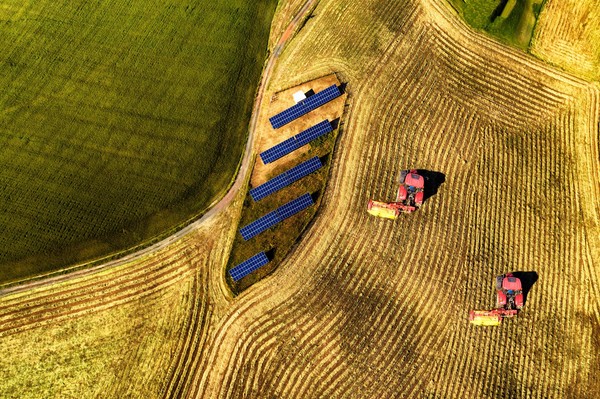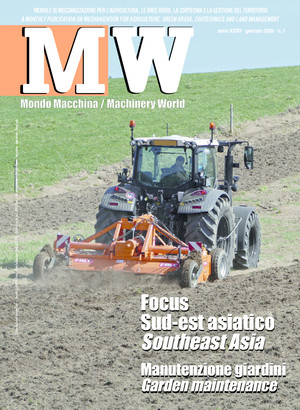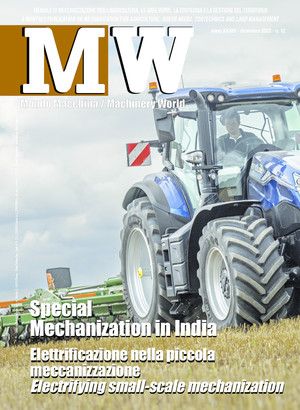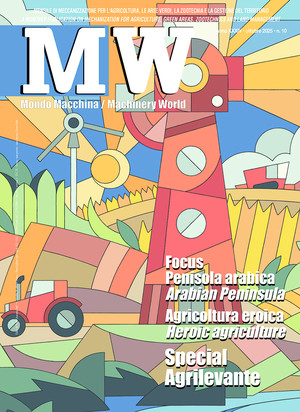
European policies, a 'turning point' autumn
The new CAP will be put to the vote in November, with environmental and social sustainability as qualifying points. In the "Farm to Fork" perspective, Italy and Europe can become leaders of a highly qualitative agri-food system
The new course of the European Union's agricultural and food policy is set. A 'green' change of direction proposed by the EU Commission with the 'Farm to Fork' strategy, approved in these days in the plenary assembly of the EU Parliament, and a political agreement on the CAP 2021-2027 reached in June, will enter the Assembly in November for the final green light. This second regulatory framework is decidedly different from the one tabled three years ago by the EU executive - not only because of the greater attention paid to the environment by our food systems, but also because of the new social dimension and the confirmation of the economic one - designed for producers and operators in the various supply chains, including agricultural machinery, which will have positive repercussions for all European citizens.
With the 'Farm to Fork' strategy, which together with the 'Biodiversity' strategy will have to be translated into legislation by the Commission in the meantime, as a Parliament we have set out some points that are at the heart of our political programme and which we believe cannot be renounced. The final text envisages extending to all agri-food products a compulsory system of origin labelling at the European level, the guarantee of traceability of the food that arrives on our tables - involving producers, distributors and the Horeca sector (hotels, restaurants and catering) - and the fight against the French and Nordic countries' attacks on our agri-food excellences with traffic light nutritional labelling systems, in particular the 'Nutriscore' Systems that, in our opinion, should only have an informative purpose, without influencing consumers at the time of purchase with category colours (red, yellow and green).
This differs from the 'Nutrinform Battery' mechanism proposed by Italy and other countries, which provides for a more careful and scientific reading of the calories ingested daily through the intake of foods that form the basis of a correct and balanced diet. On the sustainability front, our commitment has been to ensure that farmers have access to all available technological alternatives, starting with new biotechnologies such as TEA (Assisted Evolution Techniques), in order to drastically reduce the environmental impact of production. For this reason, we are convinced that the 'Farm to Fork' strategy can be the instrument with which Italy and the European Union can truly become leaders of increasingly sustainable systems, capable of producing healthy, sufficient and quality food for our consumers, guaranteeing an adequate income for producers.
As for the Common Agricultural Policy, which we will go into in detail in a future issue of this magazine, we would like to remind you that the three regulations of which it is composed (Strategic Plans, Horizontal and Common Market Organisation) are the basis of an unprecedented reform, precisely because they are in the name of economic, environmental and social sustainability. This CAP, which will come into force in 2023 after the planned transitional period of 2021-22, will still guarantee almost 32% of the total EU budget from a financial point of view, with a budget of 386.6 billion euro that will support around 7 million European farms. Italy will benefit from this sum to the tune of almost €40 billion. In 2018, we started from a somewhat vague proposal by the previous Commission, which risked leading to the re-nationalisation of a CAP that was historically the basis of European construction.
Now, with the three legislative texts that are about to be definitively approved, we can say that we have succeeded in safeguarding the common dimension of the CAP, avoiding distortions of competition between farmers from different Member States and putting the role of the regions back at the centre, as they will continue to be the main players in drawing up national strategic plans. And then we managed to include a third pillar of agricultural policy - the social pillar - which we had been working on for years. A new principle that will no longer lead the CAP to finance farmers who disregard the rights of their employees. We hope this will put an end to unfair competition against the vast majority of farmers who take proper care of their workers.
All of this without weakening the economic objectives of the agricultural policy, since 15% of direct aid will still be reserved for support to the most representative Italian products, from tomatoes to olives, reinforcing measures to manage environmental or market risks against production or income losses. Of course, the agricultural sector will be called upon to make a further environmental effort to ensure increasingly sustainable production systems: this is why the eco-schemes provide for aid of up to 25% of direct payments, which in Italy will translate into around 900 million euros per year for farmers who implement innovative practices that protect the unique levels of biodiversity that characterise Italy's rural areas.
For this reason, the 2021 edition of EIMA International will not only be the world's exhibition showcase for Italian agricultural machinery, as per tradition, but also a great opportunity to invest in the future of the agri-food sector and our economy.








